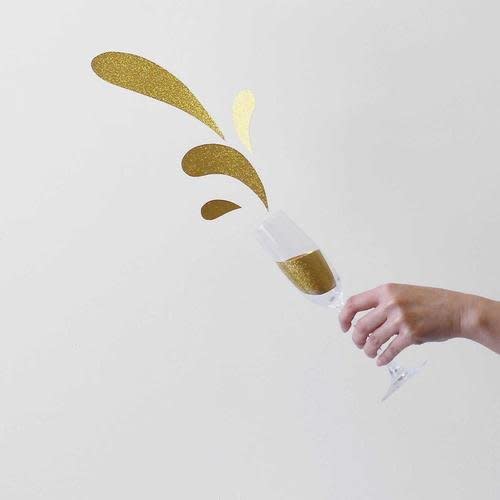What's the Difference Between Prosecco, Champagne, and Cava?

When you go to a bar and ask for a glass of something bubbly, chances are good that you'll have a choice to make—even though, most of the time, when we talk about sparkling wine, we're colloquially referring to Champagne. But, as the French would be quick to point out, not all sparkling wine is Champagne. So what, exactly, is the difference between Champagne and sparkling wine? Does sparkling wine taste different than Champagne? You could also theoretically pop bottles of prosecco or cava in the club—but does that make you less of a baller than if you popped a bottle of proper Champagne? How do those two different types of sparkling wine compare to Champagne?
Let's start with Champagne, the granddaddy of all sparkling wines. There are actually very strict rules set in place by the Comité Interprofessionnel du Vin de Champagne, a group of Champagne producers and houses in France, that define what can be called Champagne and what has to be deemed sparkling wine. Champagne, according to the CIVC, can only refer to sparkling wine that is grown and produced in Champagne, France. There are other definitional requirements—including secondary fermentation of the wine to create those signature bubbles and the use of specific varieties of grapes—but that geography is basically the most important distinction between Champagne and other sparkling wines.
That means if you're drinking a glass of something bubbly, and it's not explicitly from Champagne, France, it literally cannot be called Champagne, even if it's produced in the exact same way that Champagne is produced using the same types of grapes that you'd find in Champagne. So what, then, are you drinking?
As with Champagne, the type of sparkling wine you're drinking depends on the place its grown and produced. Cava is Spanish sparkling wine, and is also produced with in-bottle fermentation. Prosecco, the sparkling wine that's most commonly found in your brunch mimosas, is Italian. Prosecco differs from cava and Champagne slightly because it is not fermented in the bottle; instead, it's fermented in giant metal vats, which is called the charmat method.
When it comes to taste, however, it can be hard to tell exactly what type of sparkling wine you're drinking. Even within each of these categories, there are different varieties of sparkling wine, ranging from brut, which is dry with a hint of sweetness, to dry, which is, somewhat confusingly sweet and not dry at all. As Emily Bell notes in Vinepair, "Well, this is kind of an impossible question. There are variations in flavor within both categories, so it’s kind of hard to compare them as a whole." But, she adds, in general, Champagne has a more yeasty taste than prosecco. Cava, meanwhile, is pretty similar to Champagne in taste.
But if you're looking for something bubbly that'll make your brunch go down a little smoother, you can't really do wrong with any of these three options.
